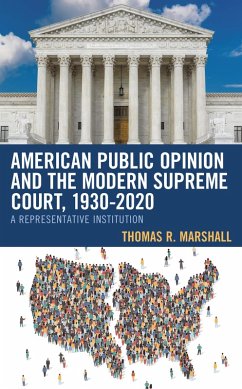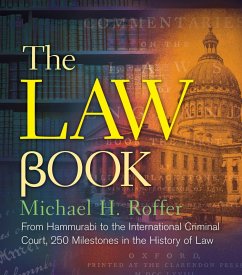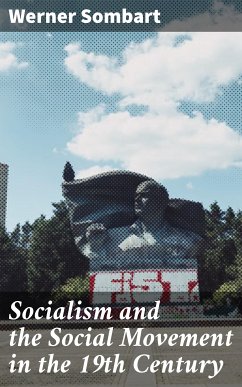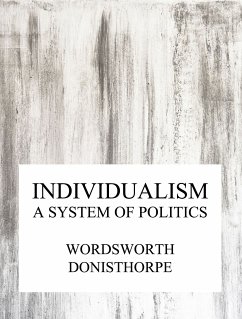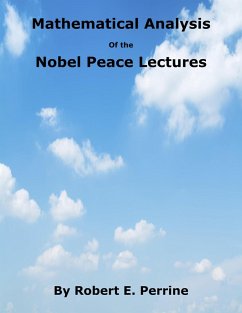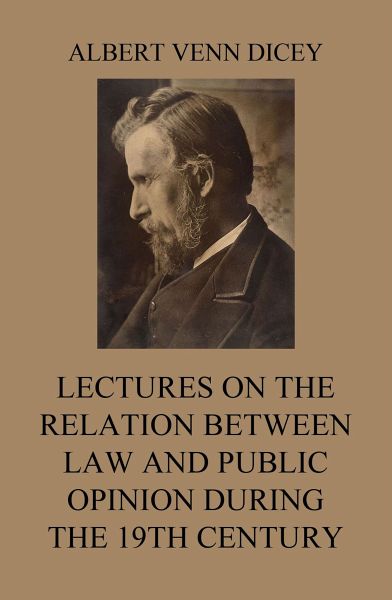
Lectures on the Relation between Law and Public Opinion during the 19th Century (eBook, ePUB)
Sofort per Download lieferbar
5,99 €
inkl. MwSt.

PAYBACK Punkte
0 °P sammeln!
A course of lectures delivered at the Harvard Law School in 1898 form the basis of the book; but these have been modified and altered in subsequent presentation at Oxford University. Three opening lectures discuss the relation between law and public opinion, the characteristics of law-making opinion in England, and the influence of democracy on legislation. These prepare the way for the central theme, an analysis of the leading tendencies of English legislation during the past century. Three periods are marked off, in each of which the main current of legislation is clearly shown to be in acco...
A course of lectures delivered at the Harvard Law School in 1898 form the basis of the book; but these have been modified and altered in subsequent presentation at Oxford University. Three opening lectures discuss the relation between law and public opinion, the characteristics of law-making opinion in England, and the influence of democracy on legislation. These prepare the way for the central theme, an analysis of the leading tendencies of English legislation during the past century. Three periods are marked off, in each of which the main current of legislation is clearly shown to be in accordance with certain definite principles: first, the Blackstonian period of Old Troyism from 1800 to 1830, marked by legislative quiescence; second, the period of Benthamism from 1830 to 1870, marked by profound legislative changes in accordance with individualistic ideals; and third, the period of collectivism, from 1865 to 1900, marked by the same Benthamite method of legislative activity, but by an antithetic socialistic or collectivistic ideal. This central discussion is followed by two chapters on counter-currents and cross-currents of legislative opinions and on illustrative tendencies in judicial legislation during the period under review. A final lecture discusses the relation between legislative opinion and the general tendencies of English thought in other spheres and in the writings of notable individuals, such as Harriet Martineau, Charles Dickens and John Stuart Mill.
Dieser Download kann aus rechtlichen Gründen nur mit Rechnungsadresse in A, B, BG, CY, CZ, D, DK, EW, E, FIN, F, GR, H, IRL, I, LT, L, LR, M, NL, PL, P, R, S, SLO, SK ausgeliefert werden.







